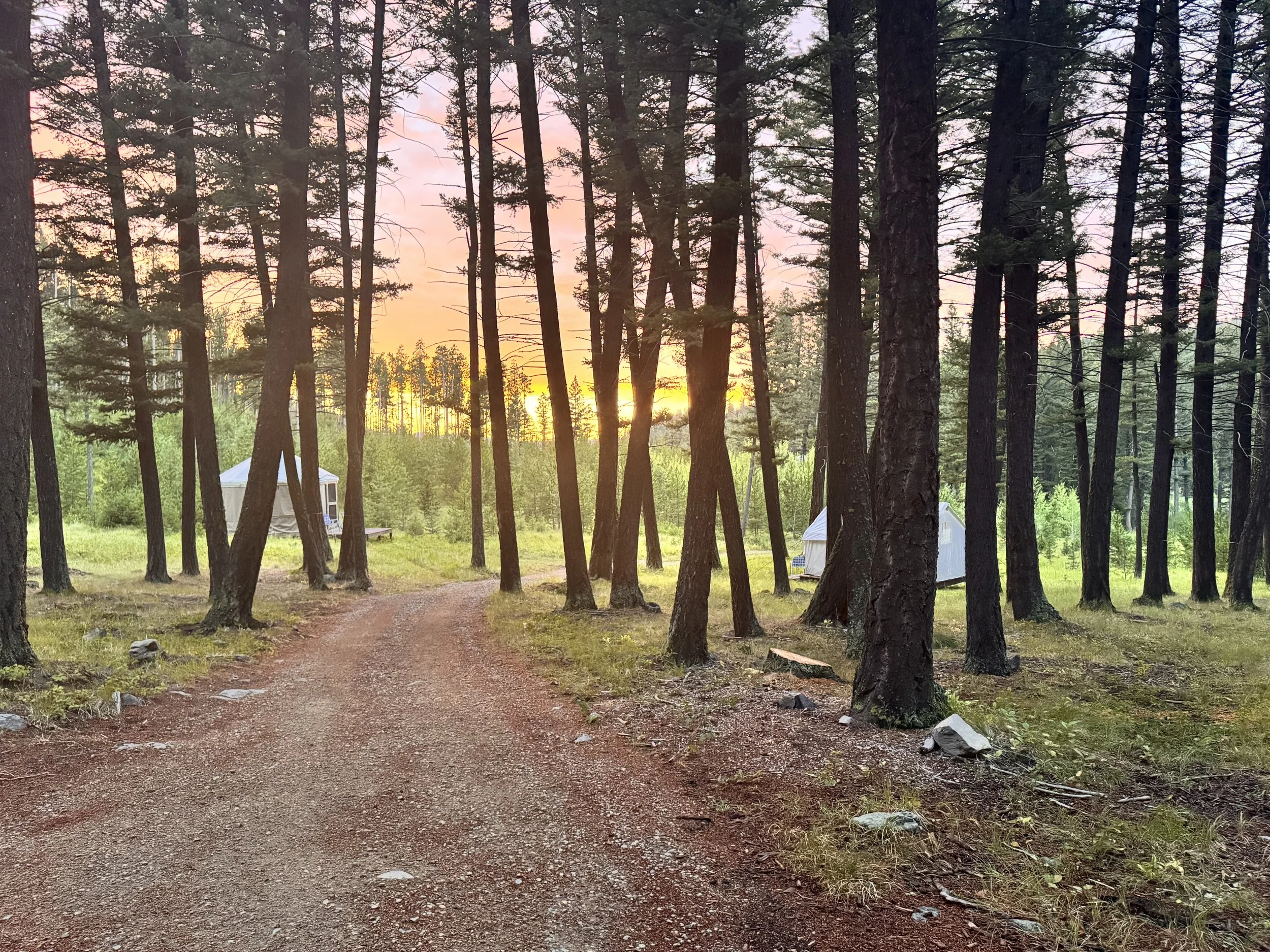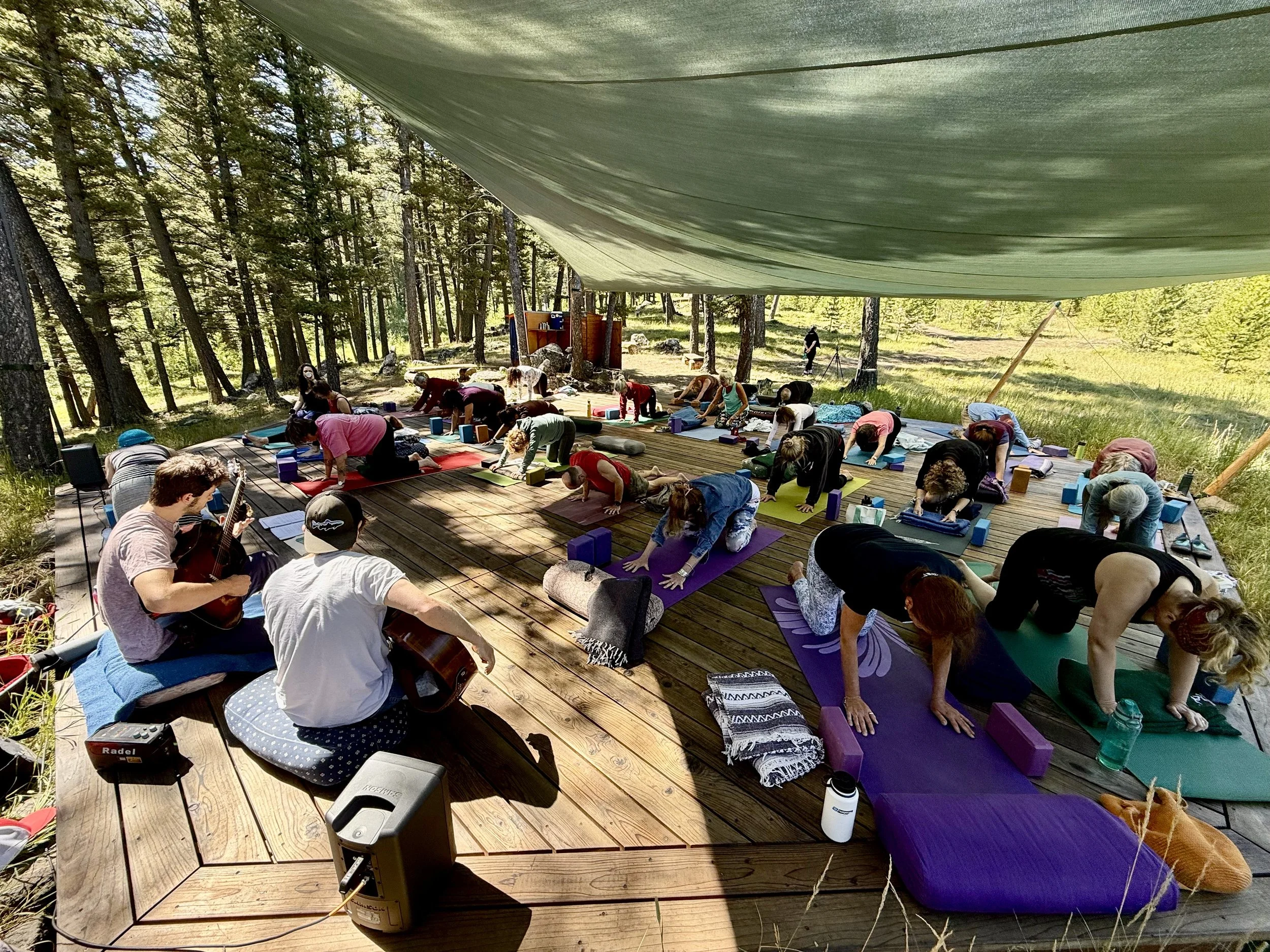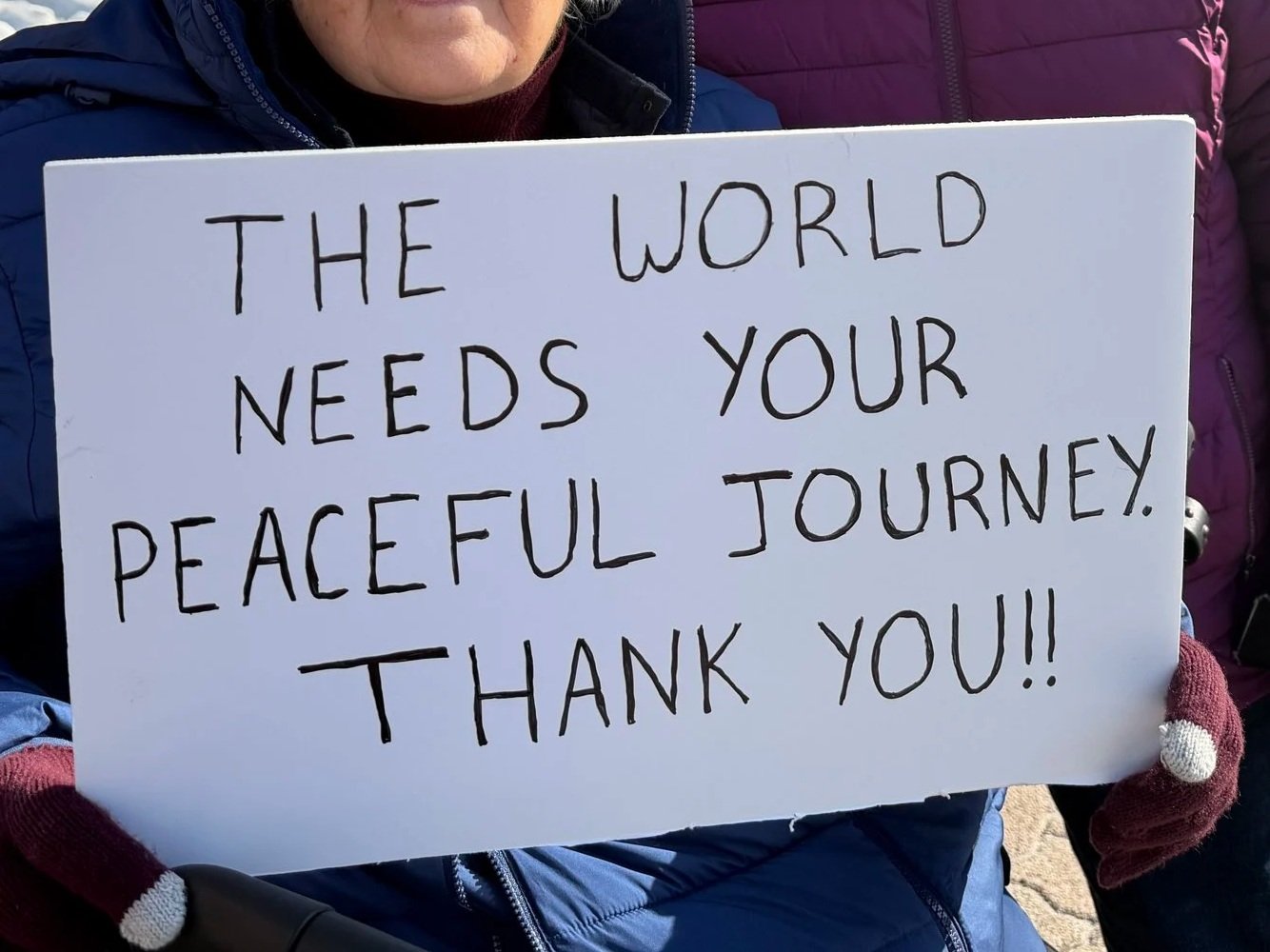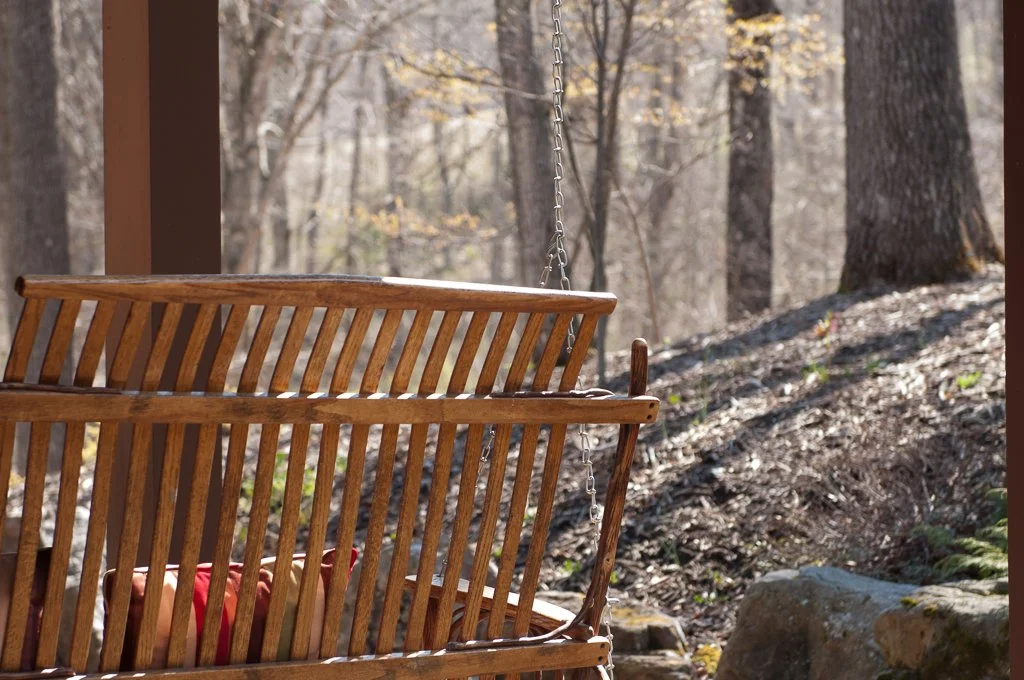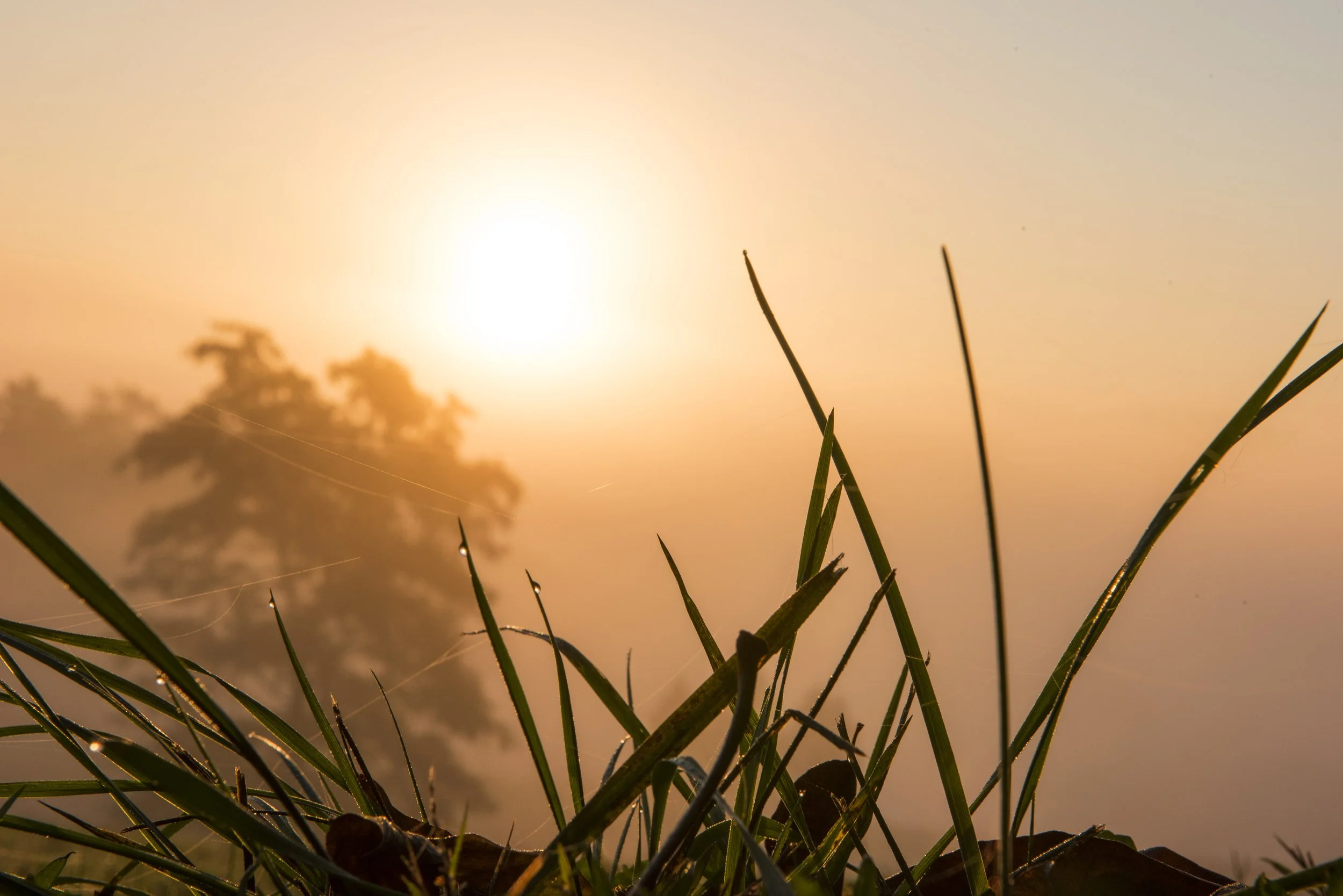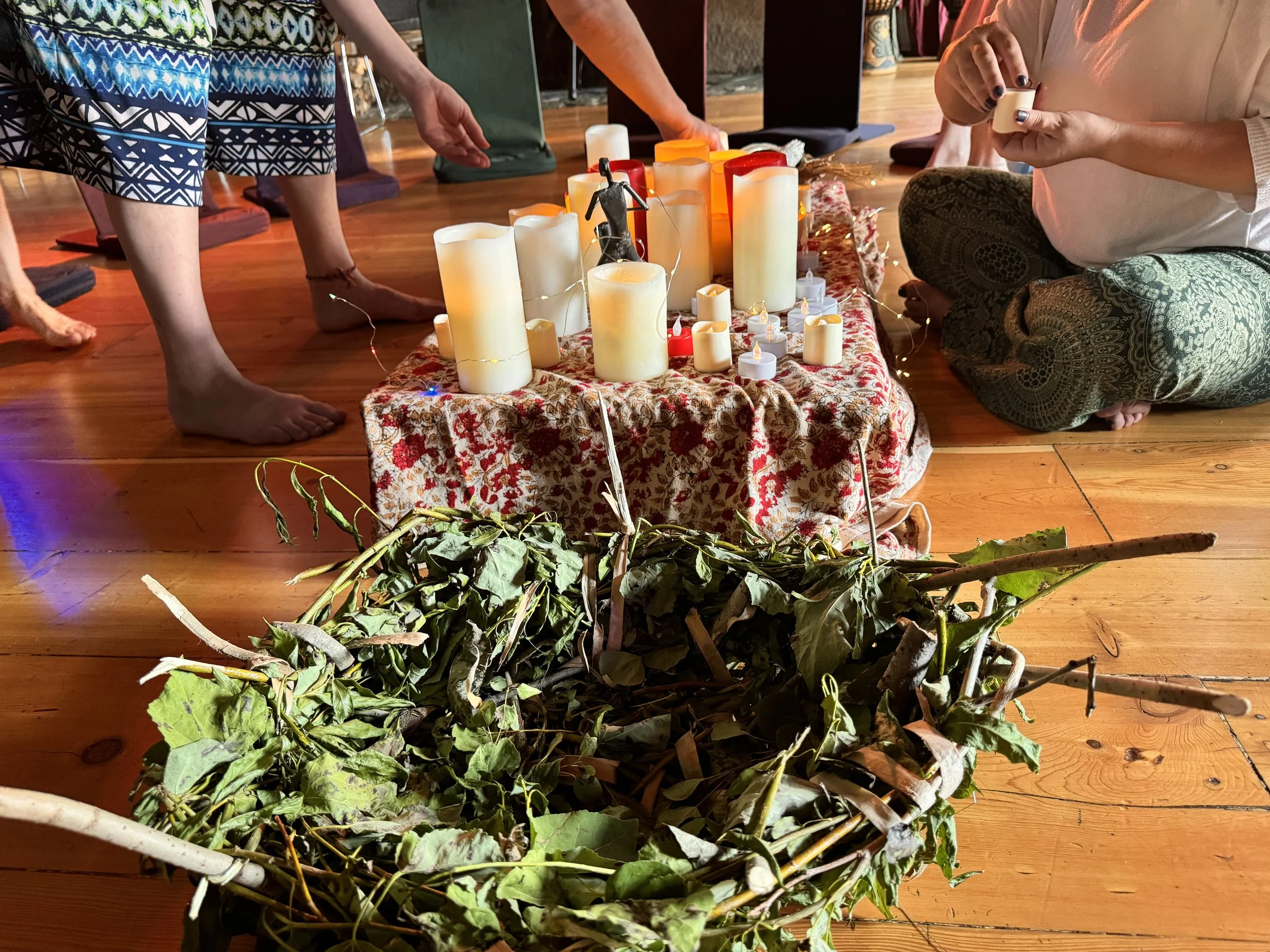We had a wonderful time at this year’s Feathered Pipe Mindful Unplug — our ninth gathering of movement, breath, music, and time steeped in nature without the omnipresent tug of technology. When we began the retreat a decade ago, the idea of needing a healthier relationship with our devices seemed fresh and even a little radical. Now, it’s a no-brainer. The question now is whether we actually live that out in our day-to-day lives.
Image credit: Christine Eckel
A theme I keep returning to — in my practice and in real life — is non-reactivity. Not the numb, “tune-it-all-out” kind, but the grounded, aware presence that allows us to sense deeply for wisdom before choosing a response.
It’s so easy in our hyper-connected world to fall into a kind of digital reactivity. A headline pops up, a post appears in our feed, a friend shares something outrageous or upsetting — and without a breath, we react. We repost. We comment. We add fuel to the fire.
The problem? Most of the time, our online worlds are already curated to reflect what we believe. So when we blast our outrage into that space, it doesn’t change anyone’s mind. It doesn’t bridge divides. It only amplifies emotion — often fear — in people who already agree with us.
What if, instead, we paused? What if we took that moment of strong reaction as an invitation to breathe, feel our feet on the ground, and then detoured the mind to ask:
Is there a meaningful action I can take here?
Does this need to be shared, or do I simply need to acknowledge my own feeling and let it pass?
Am I adding clarity, or just adding noise?
This is where practice meets the real world. Yoga teaches us to notice sensation and emotion without getting hijacked by them. Then we can choose actions that are intentional and effective, whether that’s reaching out to help someone in our community, supporting a cause in tangible ways, or sometimes, simply not reacting in a way that feeds the fire.
In other words, when the building’s on fire, maybe the most skillful thing isn’t yelling “It’s burning!” louder than everyone else. Maybe it’s quietly picking up a bucket.
This isn’t about disengagement — it’s about meaningful engagement. Our practice gives us the tools to meet challenges without losing our grounding, our compassion, or our discernment.
